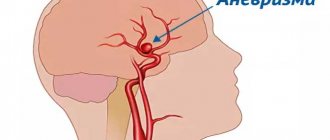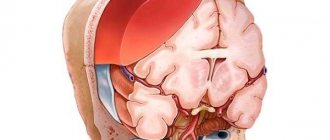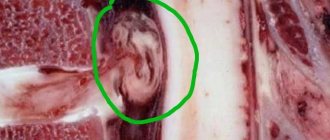Content:
- Features of coma in drug addicts
- Why does a drug-induced coma develop?
- Signs of a drug-induced coma 3.1. How coma begins in drug addicts 3.2. Progression of drug-induced coma
- How is drug-induced coma treated?
The consequences of a drug-induced coma are terrible. Very often this condition leads to disability, mental disorders and death. You shouldn't even try to treat it yourself. By delaying contacting a narcologist, the addict risks death.
How do you live after completely giving up alcohol?
This is what former patients of the Medical Group who completed a course in the treatment of alcoholism say.
It specialist
– More than a year ago I met a girl and somehow she hooked me and led me to a healthy lifestyle. We are not together now, but I have given up alcohol. There are quite a lot of changes: I get up calmly, there is no hangover, I don’t waste the whole day, I spend money (I loved good whiskey, which now costs 4-5 tr) - I don’t behave inappropriately, for which I was often ashamed, I don’t smell like fumes. In general, I’m glad that I gave up alcohol completely, without making any concessions to myself, even if it was strange and unusual at first.
passerby
– What can I say? It was the best 15 minutes of my life. And jokes aside, I didn’t drink anything alcoholic for about 3 months while I was treating my stomach. I didn’t lose anything other than the loss of a reason to get together with yet another not particularly close “friends”, a headache in the morning and a feeling of shame. I’m in good condition, I don’t fall into depression, but I haven’t become any healthier or happier, to be honest.
Engineer
– It turned out that there is enough entertainment in life besides alcohol - sports, hobbies, relaxation, communication with smart people (and not talking about life “in blue”). I felt better, was more productive, my social circle changed dramatically, I became more open and cheerful. I didn't notice any negative aspects.
Marketer
— My boyfriend absolutely does not drink. I remember when we started dating, I spent hours proving that salted fish tastes perfect only with beer. Slowly I stopped drinking. The only thing is that I eat food that is prepared with alcohol, but he refuses such food. Pros of giving up alcohol: - Sundays appeared. Usually after Saturday you lie flat, you can’t drive, and in general you don’t want to lift your body out of bed.
And here you can go to the bar, come back at 3 a.m. and go barbecue by 10 a.m. — bars, restaurants, nightclubs: you remember all the concerts, you’re not ashamed of the photo reports, you can dance longer and have an order of magnitude more energy. I’ll add here that being drunk in such places broke a bunch of heels, tore jeans and ruined clothes. Now everything is in the past. — open to a bunch of non-alcoholic cocktails. I've tried them so much that I'm already tired of them. Nowadays it’s more often fresh or fruit drinks.
But I assure you, a non-alcoholic cocktail in a beautiful glass is as uplifting as a Margarita. - money. Now it’s very disappointing to look back on the past and remember how much was drunk. I lived from Friday to Friday, received my salary and ran to buy clothes for the club, go to the chicane and buy an expensive bottle of wine and at the bar I’ll be so smart and proud I’ll buy alcohol for myself. Previously, a trip to a bar cost about 5 thousand rubles per person. (Taxi in both directions, alcohol, snacks, breakfast in the morning in a cafe), now 500 rubles for two. These are 2 non-alcoholic cocktails, we are driving our own car)))
Political scientist
— My life, of course, changed when I began to consume less alcoholic beverages. All the advantages of a sober life have long been described. But! In my humble opinion, completely giving up alcoholic beverages is akin to completely giving up, for example, chocolate, rolls and other sweets. Some people can do this, but others can’t. If alcohol brings pleasure (at least in its taste), then why do you need to completely give it up for the sake of something or someone? People trying to lose weight completely give up sweets and often this breaks them psychologically.
I hope everyone understands my analogy. There is nothing wrong with drinking a small amount of high-quality alcohol: a glass of dry red wine with lunch or dinner (by the way, this is an integral part of the Mediterranean diet), a glass of live beer once a week. This is more useful than harmful. And there is no fumes, hangover, missing Sunday, etc.. There are two main things: you cannot let alcohol become a habit (and further addiction), and you also cannot go to extremes and make a cult out of giving up alcohol. PS I personally don’t drink much – I don’t feel like it. Every couple of months, a good beer in good company, champagne for the New Year, a little whiskey or cognac for my birthday... Several reasons prompted me to give up alcohol. It all started with the fact that I had a three-month binge, at the end of which I realized that I did not remember all this time. I felt sad about how much time I didn't spend with friends and family, how much time I didn't do things I loved, and so on.
Then I took up sports again (and started drinking because depression set in after the operation and I had to give up sports, but I lived by it) and everything went away on its own. Once I drank again and it all ended with vomiting, calling the doctors and inflammation of the pancreas. During my binge drinking I managed to ruin my body. Now every time I drink even a little, I feel bad - I feel nauseous, have a stomach ache and a headache. And the whole face becomes covered with spots. I noticed a tangible difference - I became more productive, began to put more effort into work, achieve more, earn more money and enjoy life more. There are no cons, only pros. I’m also very glad that in our company, in principle, it is not customary to drink, and even on a friend’s birthday, everyone limited themselves to modest portions in the form of one glass, and some did not drink at all. Because it was good that way.
Journalist
— I haven’t drunk for a little over a year. I wasn’t a fan of booze before; I don’t like the taste of alcohol. If I drank before, it was in very large and noisy companies. I refused because I like to completely control my will more than to depend on the tricks of alcohol. Besides. I love my memories too much, and I want to remember all the evenings, and not selectively.
There has not yet been a single day when I wanted to change my mind.
And people who reach for a glass on any more or less festive day make me feel pity and disgust :) - attitude towards oneself, self-care, self-respect. Everyone has photos from drinking parties, aren’t you ashamed to look at them? I really like it. Yes, it was fun then, but now looking back is inconvenient and unpleasant. This is not all, this is what you encounter every day and for which you are proud of yourself. The article is located in the categories: client questions, addiction, psychology of addiction
Features of coma in drug addicts
Coma in drug addicts provokes respiratory depression and blocks the normal functioning of the central nervous system. It develops after consuming narcotic salt, barbiturates, spice, and opiates. All of these substances have an incredibly powerful effect on the human body, so it is quite easy to overdose on them.
From the outside it may seem that the drug addict is sleeping. In fact, he is in a coma. He does not respond to external stimuli and does not control his own physiological urges. Unable to interact with others.
Emergency care and treatment
It is not entirely appropriate to talk about treatment, since a drug-induced coma is a deliberately induced condition, not a disease. Therefore, it is correct to remove the patient from such a state. The duration of coma depends on the location and extent of brain damage. They are removed from it when the problem and the consequences of the disease are eliminated.
Treatment primarily involves maintaining the patient’s vitality, so it begins from the moment first aid is provided. The doctor helps the patient clean the oral cavity, does not allow the tongue to fall back, so as not to cause asphyxia.
If resuscitation procedures are required, chest compressions and artificial respiration are performed. The patient is put on an oxygen mask or a breathing tube is inserted, and medications are administered to normalize and relieve.
The second stage of treatment begins in the hospital after the patient has been examined. For treatment to be effective, it must be aimed at eliminating the causes that led to the coma.
The treatment method may include the following components:
- Surgical intervention. In case of traumatic brain injuries, extensive hemorrhages, or tumor processes in the brain, surgery is performed to eliminate this process.
- Antibacterial therapy. If there is an infection or possible infection due to injury, antibiotic therapy is given. It is also recommended if pneumonia develops due to mechanical ventilation.
- Forced diuresis. If the coma is caused by intoxication, it is necessary to remove toxins from the body. The patient is given intravenous fluid and induced to urinate to remove toxic substances through the kidneys.
Since in coma there is suppression of the vital functions of the body, emergency care will include resuscitation procedures in the form of artificial respiration, possibly starting the heart, as well as help to eliminate the causes of its occurrence: removing intoxication, hypoxia, stopping bleeding, replenishing dehydration or exhaustion, reducing or increased glucose levels, etc.
Treatment of coma is carried out in the intensive care unit and also begins, first of all, with the treatment of its causes, followed by the elimination of cerebral consequences and rehabilitation. The specifics of therapy depend on the underlying cause of the condition and the resulting brain damage.
Why does a drug-induced coma develop?
The worst consequence of a drug-induced coma is death. To prevent such an outcome, it is necessary to understand why a coma develops.
The fact is that synthetic drugs contain a large number of various toxic additives. Trying to save money, drug addicts buy surfactants made in artisanal conditions. After taking them, they experience a sharp deterioration in well-being, which leads to coma.
Also, this complication of drug addiction occurs when using high doses of surfactants.
Drugs disrupt the metabolic processes occurring in the brain and do not allow nerve impulses to pass through the fibers. More often than others, people who use barbiturate-type sleeping pills, spice, designer salt, morphine, methadone, and heroin face the consequences of a drug-induced coma.
Narcologists know of many cases when patients who fell into a coma did not have time to be taken to the hospital - they died at home or on the way to the hospital.
Even if doctors manage to save the life of an addict, one can never rule out the occurrence of serious disorders that will make him incapacitated.
Causes of complications after tooth extraction
General disorders of the condition usually occur against the background of the patient’s nervous overstrain, which are associated with fears, often formed in childhood. But technologies are changing, and now treatment by dentists is not accompanied by pain or any other unpleasant sensations. An individual method of anesthesia is selected for each patient to ensure that tooth extraction is easy and painless.
Local complications after tooth extraction can be associated with several factors. The most common of them are:
- anatomical features (cause a root or crown fracture, injury to adjacent teeth);
- careless work of the dentist (improper use of forceps leads to fractures of the tooth or its root, an incompletely separated tooth ligament injures the gum during removal, and when the forceps or elevator slide, damage to soft tissues is caused);
- lack of x-ray control (causes tooth remains to remain in the gum);
- severe carious lesions (provokes fractures of the root or dental crown);
- failure to follow the doctor’s recommendations (excessive or poor hygiene after tooth extraction causes alveolitis or insufficient opening of the mouth during surgery can cause injury to the gums or soft tissues).
Anatomical features that provoke complications after tooth extraction
- The roots are thin and long.
- Thick alveolar walls, which are difficult for the doctor to work with.
- High level of root curvature.
- Hypercementosis.
- Dense partitions between roots.
- If there are many roots, the degree of their divergence is taken into account.
Knowing the causes of complications after tooth extraction, you can prevent their occurrence. But if it was not possible to avoid complications after the operation, it is necessary to immediately proceed to treatment; delaying seeking medical help leads to pathologies.
Signs of a drug-induced coma
What signs of a drug-induced coma will appear in a drug addict are determined by the type of drug used and its doses. The sooner treatment is started, the better. At the initial stage of intoxication, the probability of survival is very high. If relatives call the doctor late, death is possible.
How does coma begin in drug addicts?
The patient takes another dose of the drug and falls asleep. In his sleep, he begins to develop a comatose state. It is characterized by the following symptoms:
- loss of consciousness;
- decreased sensitivity;
- lack of basic neurological reflexes;
- weak response to pain;
- muscle relaxation;
- convulsions.
The pupils stop responding to light. Sometimes a pathological Babinski reflex is recorded - when the foot is irritated, the big toe reflexively bends. Breathing remains rhythmic, pulse rate and body temperature are within the physiological norm.
Progression of drug-induced coma
If medical care is not provided to the patient in the first stage of coma, his condition will continue to worsen. The muscles will relax completely, the badges will expand, the tongue will begin to fall into the throat (this can cause suffocation). Breathing processes will be disrupted. Depression of the respiratory center in the brain may occur. Then the addict will die from asphyxia.
Due to oxygen deficiency, the skin acquires a bluish tint. At some point, a blockage of the vasomotor center may occur. Then the blood vessels and heart will be at risk. The blood flow will be disrupted, tachycardia and arrhythmia will develop. Blood pressure will drop sharply. Urine will stop coming out. Possible pulmonary edema.
In drug-induced coma, death is usually a consequence of cardiac arrest or asphyxia. Sometimes doctors manage to save patients who were on the verge of death. But even with successful therapy, severe consequences for physical and mental health persist.
Correction of common complications
General violations occur less and less often in dentists’ offices. This is due to the latest technologies in this area, which allow treatment to be carried out painlessly and quickly, as well as the development of asepsis and antiseptics. But some complications still arise, although this does not happen as often as before.
If the patient’s eyes are cloudy due to fear of intervention, use a cotton swab soaked in ammonia. It is brought 7-10 cm from the nose, which brings the person to his senses. If anxiety does not go away, medical sleep is offered as pain relief.
If there is a large loss of blood during the operation, you need to carefully and promptly make up for the deficiency. Otherwise, vascular disorders develop, including hypovolemic shock and cardiac failure. Therefore, treatment should be carried out only in well-equipped clinics.
Low-grade fever is considered a normal reaction of the body to the intervention. But if it goes beyond 38.5 ºС for several days, you need to inform your doctor about this - the symptom may indicate the onset of a complication.
How is drug-induced coma treated?
The most important thing when a drug addict develops a coma is to remove the drug from the body as soon as possible. To do this, the following procedures are carried out:
- Infusion therapy. The patient is given a cleansing drip and absorbents are administered. Drugs in this group bind and neutralize toxic compounds.
- Tracheal intubation, gastric lavage by introducing a magnesium solution into it. These measures help avoid choking and reduce the absorption of drugs in the stomach.
- Infusion supplemented with a strong diuretic. The doctor increases the water load by administering intravenous glucose, potassium chloride and sodium bicarbonate. At the same time, he gives the patient a diuretic. As a result, acid-base balance and blood pressure are normalized, and kidney function is stabilized.
- Hemodialysis. Effective in the first few hours of coma. Can only be used when the heart is functioning normally. The technique is an extrarenal blood purification. It allows you to quickly remove toxins and normalize water and electrolyte balance.
Since coma remains at high risk of asphyxia, doctors pay special attention to supporting the lungs. If symptoms of suffocation occur, the patient is connected to a ventilator and given oxygen therapy. If necessary, perform emergency intubation. If edema of the pulmonary tissues has developed, antifoam agents and cardiac glycosides are prescribed. In case of severe intoxication, antidotes are included in the therapeutic regimen.
Any drug addict can experience a coma. This is because a person gets used to one dose of a surfactant and begins to gradually increase it. So, unnoticed by himself, he creates the conditions for an overdose and coma.
Don't let psychostimulants ruin your life. Treat drug addiction and recover.
Rehabilitation after a coma
There is a position according to which timely and high-quality treatment can significantly help the body cope with this condition. Initially, to maintain vital functions, the patient is provided with the ability to breathe and function of the cardiovascular system. Next, all the necessary studies are carried out aimed at identifying the disease - the cause of the development of coma. It is the research results that determine further treatment, prescription and use of medications. When a patient comes out of a coma, treatment of the underlying disease not only does not stop, but complications are also prevented. In the future, rehabilitation measures are prescribed.










